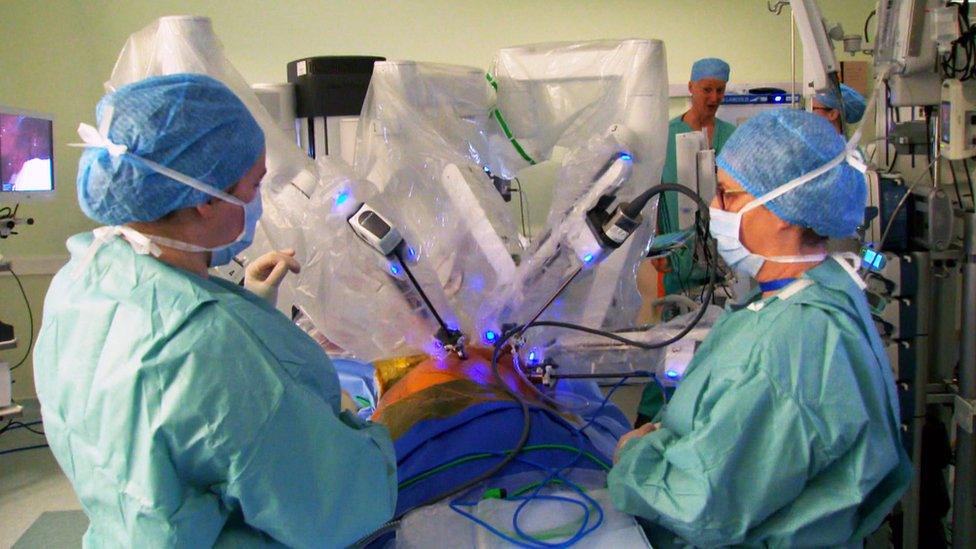Leicester NHS trust receives £1.5m for robot surgery theatre
- Published
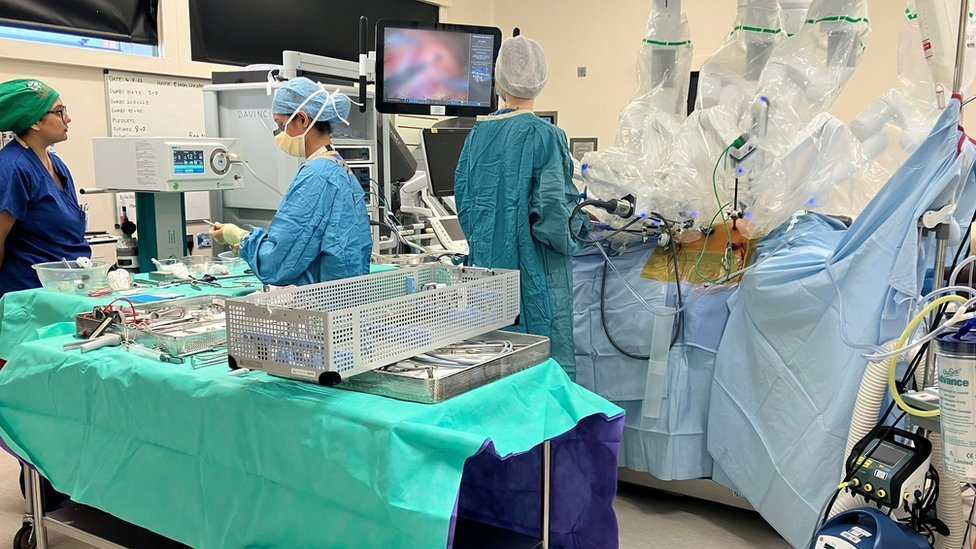
Christopher Elton had the operation at Leicester General Hospital on Wednesday
Robotic surgery will be used in more procedures in Leicester after a £1.5m grant was provided.
The University Hospitals of Leicester NHS Trust (UHL) received funds from businessman and philanthropist Sir David Samworth, who died last year aged 87.
It says more than 900 patients will be treated annually at the planned Sir David Samworth Robotic Theatre.
The theatre is set to treat patients later this year.
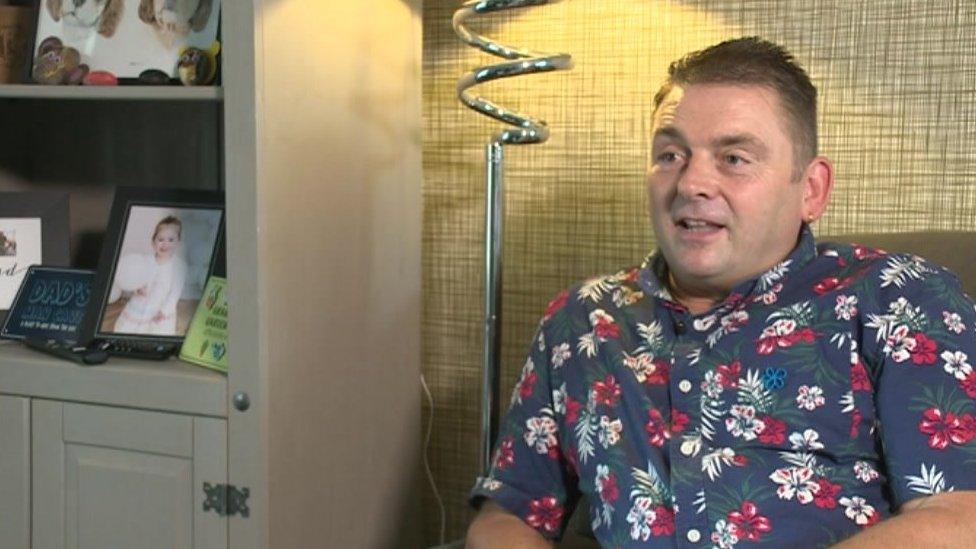
HGV driver Christopher Elton is hoping to recover quickly from his operation
Christopher Elton found out he had kidney cancer on his birthday this year.
The 50-year-old underwent a partial nephrectomy at Leicester General Hospital on Wednesday.
Ahead of his operation, he said he was "a bit nervous" about the procedure, but found the robotic element "quite interesting".
"The surgeon's outside, he controls the robot from the outside, and does all the surgery using the robot - it'll be interesting, as long as it all goes to plan I'll be happy," he said.
"Now I'll have something to tell the grandkids when they get a bit older."
Precise approach
Ben Jackson, a consultant urologist who treated Mr Elton, said the robotic aid meant procedures could be "minimally invasive" to help patients recover more quickly.
"The aim of a partial nephrectomy is to remove just the cancerous tumour from the kidney and leave as much of the healthy kidney behind and functioning as [well as] possible, and the robotic system really allows us to do that as precisely as possible," he said.
"It gives us excellent three-dimensional vision of the tumour and the kidney behind it."
Mr Jackson said the robot provided a "big advantage" by allowing surgeons to carry out "more complex" procedures than normal keyhole surgery, with the new system being bought set to expand the uses to more types of cancer.
As well as the robot grant, the Samworth Family Foundation has also donated £455,000 to fund research into the early detection of cancer using a blood test known as liquid biopsy.
UHL chief executive Richard Mitchell said the trust was "hugely grateful" for the grants.
"[They] will undoubtedly save lives - both through the provision of leading-edge surgical techniques and much needed research into earlier diagnosis," he said.

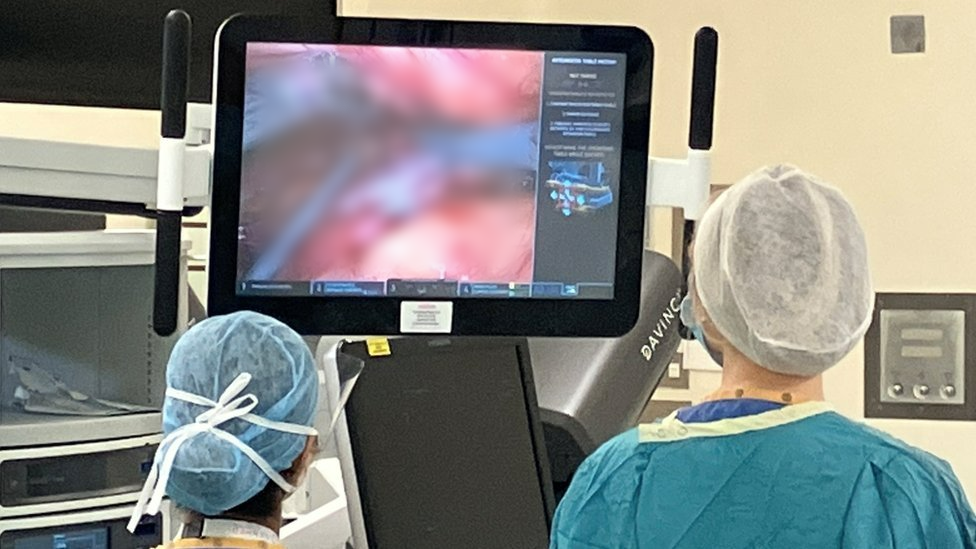
Doctors use robots to help them with certain procedures
Analysis
By Rob Sissons, BBC East Midlands Today health correspondent
An increasing number of operations involve robotic-assisted surgery.
It is designed to enhance the minimally invasive conventional keyhole surgery.
The system being used in Leicester has also been adopted by other major hospitals in Nottingham and Derby.
One of the main obstacles to expanding the scope of robotic surgery is the expense - in a world of competing NHS priorities money can be a barrier to achieving the aspiration of doing more robotic surgery.
In Leicester the £1.5m gift from the Samworth Foundation will see the robotic surgery programme quadruple to more than 1,000 cancer procedures a year.
The robotic system is controlled from what looks like a games console by the surgeon who is seated during the operation.
It is distinct from artificial intelligence in that it is not pre-programmed but controlled in real time by the operator.

Follow BBC East Midlands on Facebook, external, on Twitter, external, or on Instagram, external. Send your story ideas to eastmidsnews@bbc.co.uk, external.
Related topics
- Published5 July 2023
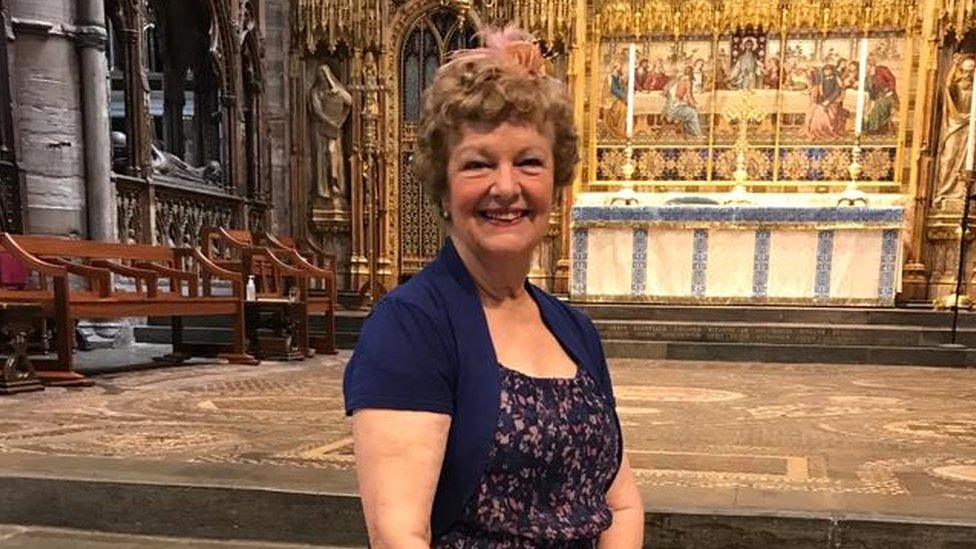
- Published13 June 2023
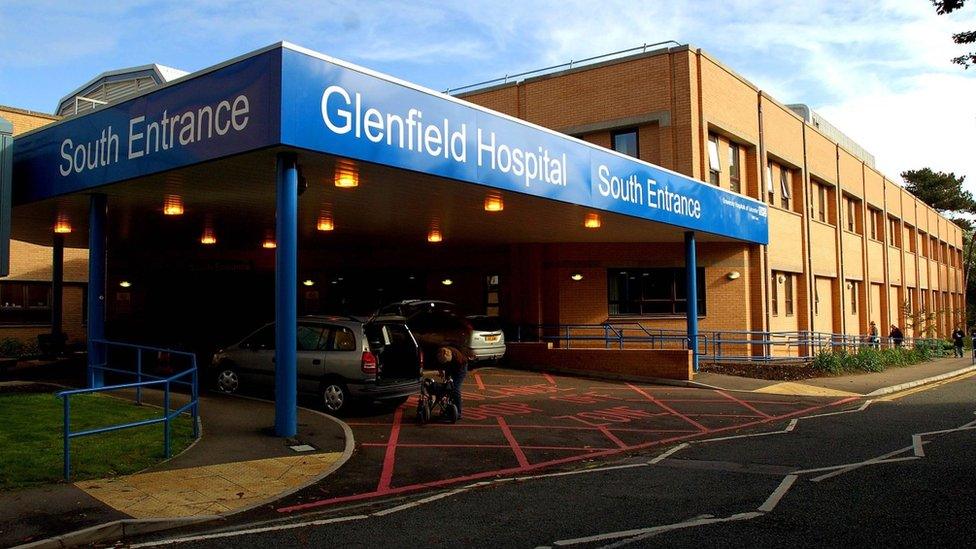
- Published7 January 2023
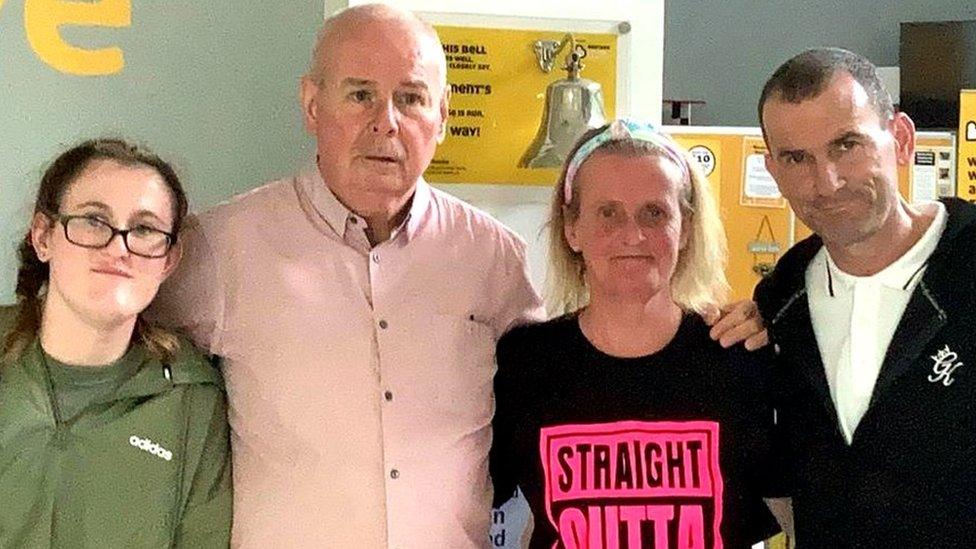
- Published18 August 2022
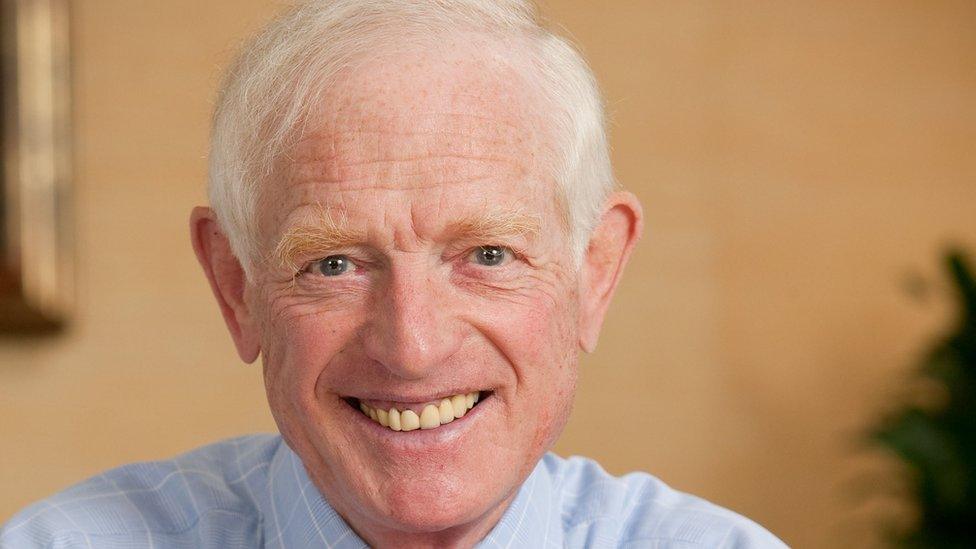
- Published12 December 2019
